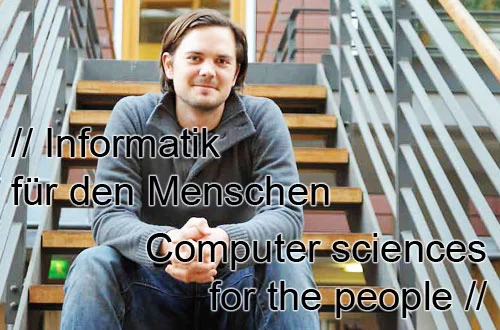Computer sciences for the people
If research fields were to confer awards for the ideal qualification, Johannes Starlinger would certainly be among the shortlisted candidates. In actual fact, he wanted to be a doctor, but he was stunned when his medical studies at the Medical University of Vienna required him to pick out and sort patient data laboriously and by hand. “Unbelievable,” found Starlinger: “Things like that should be automated.” After his medical studies, he opted for a second course of studies at the Department of Computer Science of Humboldt University (HU ) in Berlin.
There, the medic and computer scientist is currently taking his doctor’s degree as part of the graduate programme SOAMED, which is funded by the German research association DFG to the tune of nearly four million euros. Starlinger is one of thirty postgraduates that have four years to refine and tune an architecture for medical software. Besides the HU and Charité, the programme is also supported by the Berlin University of Applied Sciences (TU) and the Hasso Plattner Institute of IT Systems Engineering (HPI) at the University of Potsdam. The postgraduates are supervised by eleven professors, and the programme itself is managed by the Adlershof HU professors Wolfgang Reisig and Ulf Leser. SOAMED, or service oriented architectures for the integration of software based processes exemplified by health care systems and medical technology, is to enhance the present efficiency, flexibility, and reliability of communication between medical apparatus, software systems, and the persons using them. For instance, the blood results obtained with a measuring device are to be made available to other devices, statistics software, and doctors. Johannes Starlinger is working on analysis tools for genetic data that scientists can tailor to their needs. He meets IT professors like Susanne Albers of HU, who is an international leader in the development of efficient algorithms. Also at HU, Johann-Christoph Freytag is committed to the protection of personal details, whereas Andreas Polze at the Potsdam HPI is researching into the reliability and real time capabilities of software – crucial factors in an environment where human life is at stake. This range of disciplines is necessary e.g. for interlinking medical equipment and health insurance accounting systems. The applicable laws are therefore observed, privacy is maintained, and the medical profession is provided with effective support.
by Mirko Heinemann
